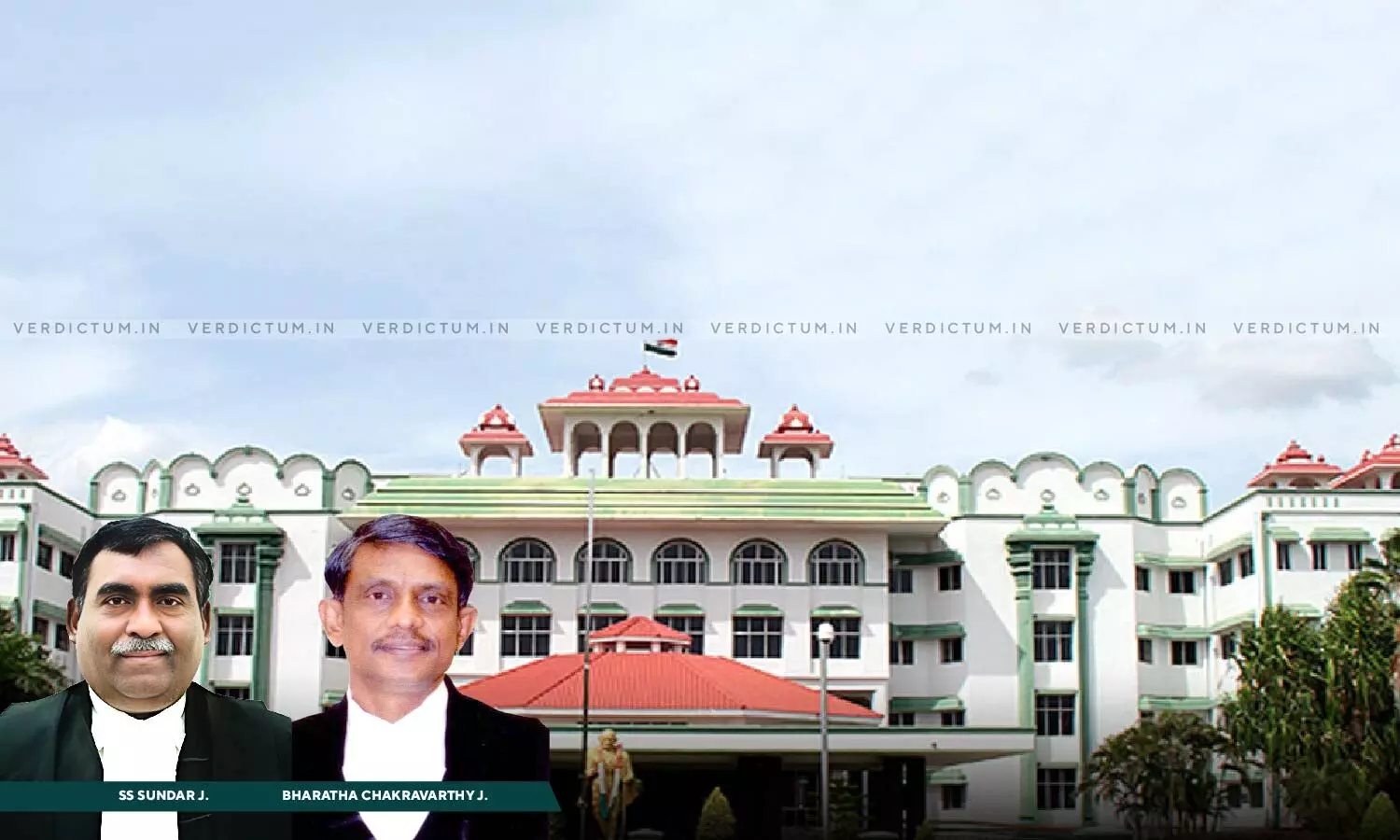
Government Order Being An Executive Instruction Cannot Override Statutory Rules: Madras High Court
 |
|While noting that the dearness allowance which is fixed for Government employees from time to time is made applicable to the pensioners of the Transport Corporations, the Madras High Court ruled that the Government Order which is an executive instruction cannot override the Statutory Rule, and therefore, the clause in the impugned Government Order which virtually has the effect of nullifying Rule 20-A of the Statutory Rules, will be invalid.
The Division Bench of Justice S.S Sundar and Justice D. Bharatha Chakravarthy observed that “even though it was within the realm of the Board of Directors to have postponed the actual financial benefits, they thought it otherwise and consequently even the pension fund trust ordered implementation. When that being so, without even referring to G.O.Ms.No.134, the impugned Government order in G.O.Ms.No.142, dated 26.08.2019 is issued by restricting the monetary benefit prospectively. In this regard, it is the Government which decided to extend subject to conditions and it is the corporations which expected to extend with or without any modification of the Government Scheme”.
The Bench further added that “once a particular decision of implementing the Revised Pay Rules, is implemented as such granting the benefits retrospectively, then at the time of carrying out of the same, it cannot proclaim one and restrict thereafter”.
AAG R. Baskaran appeared for the Appellant, whereas Advocate M. Ajmalkhan appeared for the Respondent.
The brief facts of the case were that the Government of Tamil Nadu constituted the 7th Pay Commission to revise the pay of its employees and accepted the recommendations of the commission and implemented the same by framing Tamil Nadu Revised Pay Rules 2017 vide G.O.Ms.No.303, dated Oct 11, 2017. Thereafter, the Government issued G.O.Ms.No.319 by which it considered the question of extension of the said benefits of revised pay to the State Public Sector Undertakings/Statutory Boards and the Government directed that the orders be extended to the employees of these State Public Sector Undertakings/Statutory Boards subject to the conditions mentioned therein. Later, the Government passed orders extending the Tamil Nadu Revised Pay Rules 2017 and applicable allowances to the employees of the State Transport Undertakings with only condition that the entire financial commitment should be borne by the Corporation and they should not seek financial assistance from the Government.
Thereafter, the Administrator of the Tamil Nadu State Transport Corporation Employees’ Pension Fund Trust (appellant) addressed to the Government with reference to the pensioners of the State Transport Undertakings, proposing to implement the same with prospective monetary benefit and to continue the dearness allowance without any change. Since the Government accepted the said request, the Respondent approached the High Court, which held that when the committee constituted with respect to the pensioners have gone into the matter and has recommended the implementation of the revised pay in respect of the pensioners, modifying the benefit as prospectively was incorrect. Hence, the Appellant approached the Division Bench.
After considering the submission, the Bench found that the Statutory Rules governing the pension, clearly envisages that the pensioners are eligible for dearness allowance at the rate that would be determined by the Government of Tamil Nadu.
As far as extending the revised pay and its benefits are concerned, the Bench found that it was within the realm of the Government to extend or not to extend the revised pay.
As a matter of fact, the Bench pointed that it is the Government which had decided to extend the benefits to the State Public Sector Undertakings vide G.O.Ms.No.319 and it had expressly made clear that while extending, considering the financial position, it can be made applicable with prospective effect or from a future date etc., and the Government specifically directed that the subject be placed before the Board of Directors.
“The Board of Directors of the State-owned Transport Corporations have categorically resolved to extend the benefit to the employees with effect from 01.01.2016 and the monetary benefit with effect from 01.10.2017 subject to the approval of the Government. The Government in turn had approved the same vide G.O.Ms.No.134 dated 09.05.2018”, added the Bench.
Thus, the High Court concluded that after making a conscious decision implementing the order partly by way of Statutory Rule and partly by way of extending the benefit, at the final lap, the eyes of the Government had boggled, which is impermissible.
Cause Title: The Administrator and Ors. v. Pokkuvarathu Kazhaka Oyvu Petra Aluvalar Nala Sangam and Ors. [Neutral Citation: 2023/MHC/4285]
Click here to read/download the Judgment